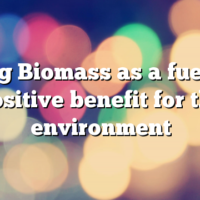Dear Richard Thank you very much for this fantastic paper about the forest I was asked if we also have this biomass debate in DK, yes we have, and the same arguments. The Danish District association DanskEnergy, the association of power companies held a conference recently about it and concluded that biomass with the certificates […]
Read More

